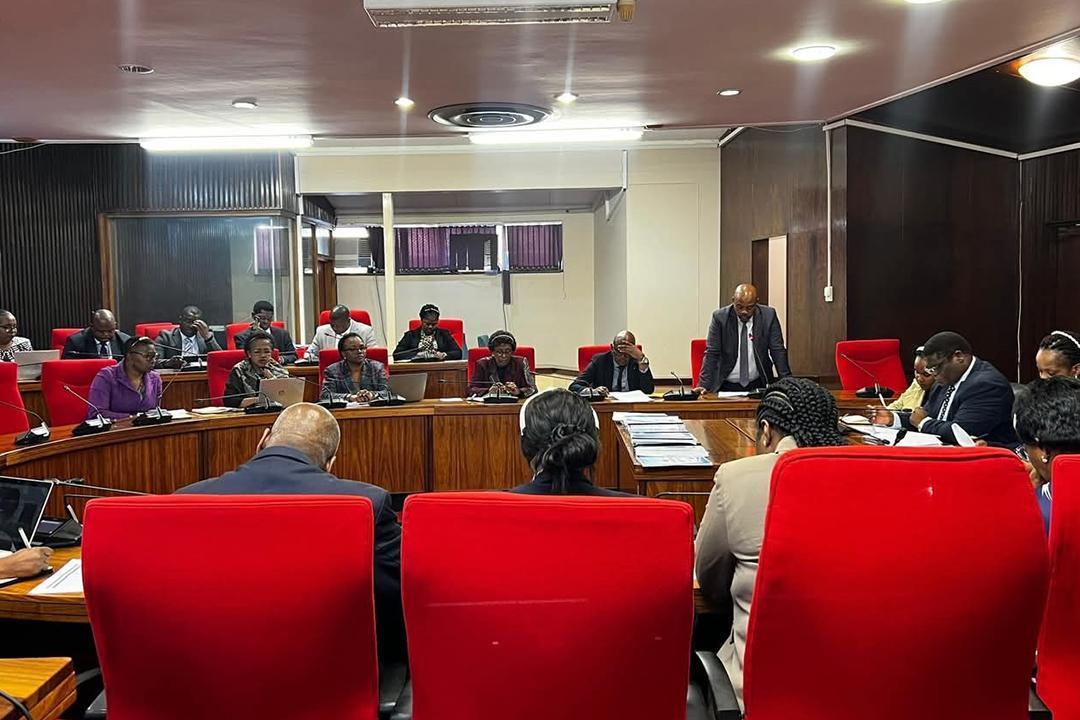Africa-Press – Eswatini. The Minister of Health Mduduzi Matsebula has assured the nation that Eswatini will continue to benefit from lifesaving HIV/AIDS services under a special waiver granted by the United States government.
The waiver, approved under the U.S. President’s Emergency Plan for AIDS Relief (PEPFAR), authorizes uninterrupted support for essential health services as responsibility transitions from the United States Agency for International Development (USAID) to the U.S. Department of State.
The minister disclosed this during a critical update shared during today’s first quarter performance report debate in Parliament.
This transition was formally communicated earlier this year through a diplomatic note from the U.S. Embassy in Mbabane to the Ministry of Foreign Affairs. The note outlined a smooth handover of key Implementing Mechanisms (Ims) involved in the delivery of frontline HIV services in Eswatini. At the heart of this development is a clear commitment to preserving the gains Eswatini has achieved in the fight against HIV, while ensuring that no person living with HIV experiences an interruption in care.
The Minister emphasized that the waiver covers a comprehensive range of critical services, including HIV care and treatment, prevention of mother-to-child transmission (PMTCT), HIV testing, early infant diagnosis, opportunistic infection treatment, strategic information systems, and logistics support for HIV commodities.
“These services are the backbone of our national HIV response, and the waiver ensures their continuity at a time when they are most needed,” the Minister said.
Under the waiver, several key implementing partners have been approved for transition to the Department of State’s oversight. These include:
NERCHA (National Emergency Response Council on HIV/AIDS): Overseeing multisectoral coordination and sustainability efforts, including human resource contracting in Hhohho and Shiselweni regions.
RISE Eswatini (Jhpiego): Delivering mobile clinical outreach services previously supported by partners such as EGPAF, World Vision, and Cabrini Ministries.
Chemonics International Inc.: Managing procurement, storage, and distribution of essential HIV medical supplies.
EpiC Eswatini (FHI 360): Leading programs focused on HIV prevention among at-risk populations, with services continuing until at least August 2025.
FI (Palladium): Strengthening data systems to improve monitoring, evaluation, and strategic decision-making.
LEAP (Global Solutions Ventures): Providing specialized consultancy services for targeted technical support.
Each of these organizations will play a critical role in implementing the high-priority activities that have been approved under the waiver. These activities include differentiated HIV service delivery models, provision of antiretroviral therapy (ART), viral load monitoring, and laboratory services such as biosafety and early infant diagnosis. The waiver also supports PMTCT interventions, including testing and re-testing for pregnant and breastfeeding women, provision of PrEP, and HIV treatment for those who test positive.
Another vital element of the waiver is the continuation of services addressing life-threatening opportunistic infections like tuberculosis (TB) and HIV co-infections, as well as cancer screening. Human resources for health also feature prominently, with staff retention and deployment seen as vital to ensuring uninterrupted service delivery.
The Minister stressed that the Ministry of Health is working in close collaboration with the U.S. Embassy, relevant stakeholders, and technical experts to manage the transition efficiently. “We are confident that this process will maintain the high standard of service delivery our citizens have come to expect. We thank the United States government for their continued partnership and shared commitment to saving lives.”
This waiver represents more than just a technical shift, it is a statement of solidarity and shared purpose in the global fight against HIV/AIDS. It ensures that Eswatini’s clinics remain stocked, its testing and treatment services uninterrupted, and its commitment to ending AIDS as a public health threat unwavering.
We commend this remarkable example of international cooperation that puts people first. It is a testament to what can be achieved when governments, donors, and partners come together with a common goal: safeguarding lives and building a healthier future for all emaSwati.
For More News And Analysis About Eswatini Follow Africa-Press







